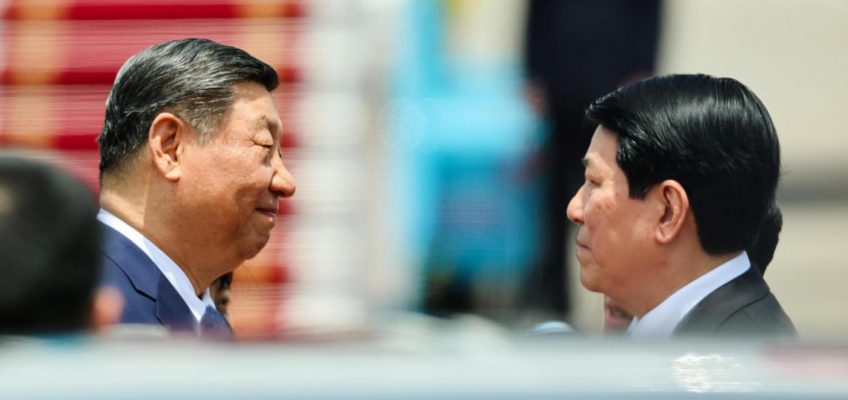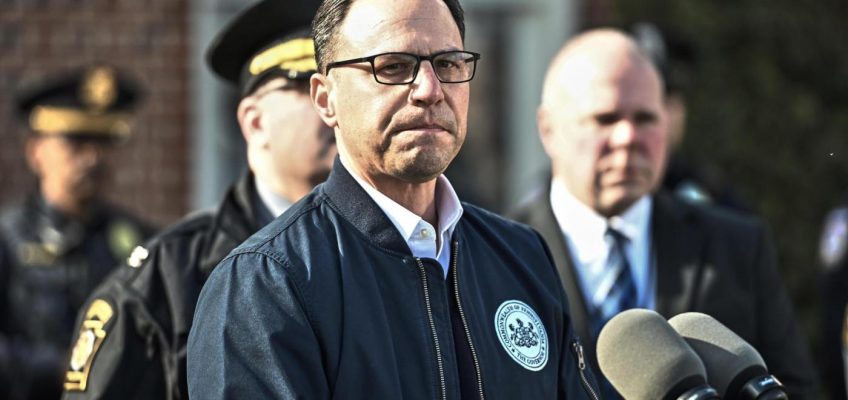By JIANG JUNZHE and MATT OTT, Associated Press
Wall Street was poised to add to last week’s gains when markets open on Monday as investors juggle incoming corporate earnings along with possible tariff updates from the U.S. and its trading partners.
Futures for the S&P 500 gained 1.4% before the bell Monday, while futures for the Dow Jones Industrial Average rose 1%. Nasdaq futures were up 1.7%.
Shares rose in technology companies that stood to be hit hardest by the U.S. tariffs against China after President Donald Trump said he was temporarily exempting smartphones, computers and other electronics from the import fees.
Apple jumped close to 6% in premarket trading Monday, with computer maker Dell and chipmaker Super Micro Computer also up by about the same amount.
Goldman Sachs rose 1.5% after the New York investment bank topped Wall Street’s first-quarter earnings and revenue targets.
Coming later this week are the latest financial results from Bank of America, United Airlines and Netflix, among others.
The Chinese Ministry of Commerce said Trump’s weekend tariffs move was “a small step” toward fixing its wrongful action of what the U.S. president calls reciprocal tariffs. China urged him to completely cancel them.
China had announced Friday that it was boosting its tariffs on U.S. products to 125% in the latest tit-for-tat increase following Trump’s escalations on imports from China.
Hong Kong’s Hang Seng jumped 2.4% to 21,417.40, while the Shanghai Composite index picked up 0.8% to 3,262.81 after the government reported that China’s exports surged 12.4% in March from a year earlier in a last-minute flurry of activity as companies rushed to beat increases in U.S. tariffs imposed by Trump.
The Taiex fell 0.1% in Taiwan, whose economy is heavily dependent on exports of computer chips and other high-tech goods after Trump said the new chip tariffs will be announced “over the next week.”
The friction between the world’s two largest economies could cause widespread damage and a possible global recession, even after Trump recently announced a 90-day pause on some of his tariffs for other countries, except for China.
In early European trading, Germany’s DAX gained 2.4%, the CAC 40 in Paris was up 2.1% and Britain’s FTSE 100 added 1.7%.
Asian shares logged sturdy gains. Japan’s Nikkei 225 rose 1.2% to 33,982.36 and South Korea’s Kospi gained 1% to 2,455.89.
Shares in technology companies surged, with Tokyo Electron up 1.4% and Advantest, a testing equipment maker, up 4.9%. South Korea’s biggest company, Samsung Electronics, gained 1.8%.
Australia’s S&P/ASX 200 added 1.3%, closing at 7,748.60.
On Friday, the S&P 500 rose 1.8%, capping a chaotic and historic week. The Dow gained 1.6% and the Nasdaq composite jumped 2.1%. For the week, they each logged gains between 5% and 7%.
Stocks kicked higher as pressure eased a bit from within the U.S. bond market, which was flashing serious warning signals last week that drew Trump’s attention.
The yield on the 10-year Treasury eased to 4.44% early Monday. On Friday, it topped 4.58% in the morning, up from 4.01% a week ago. That’s a major move for a market that typically measures things in hundredths of a percentage point.
U.S. benchmark crude oil reversed early losses, gaining 83 cents to $62.33 per barrel. Brent crude, the international standard, climbed 81 cents to $65.57 per barrel.
The U.S. dollar dropped to 143.06 Japanese yen from 143.91 yen. The euro climbed to $1.1404 from $1.1320.




